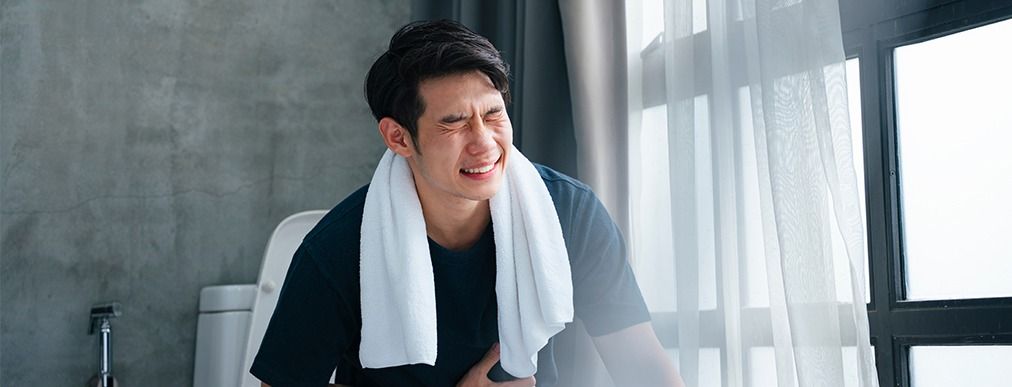Causes of Hemorrhoids
Signs & Symptoms of Hemorrhoids
5/9/2024
7 Possible Causes Of Hemorrhoids
What are the possible causes of hemorrhoids?
- Excessive straining during bowel movements
- Age
- Pregnancy
- Obesity
- Low-fiber diets
- Lifting heavy weights
- Other health conditions
Hemorrhoids (or piles) are caused by the inflammation of the veins around the anal area. It is a very common condition among adults with over three out of four adults developing them occasionally.1 In the general population, nearly 4.4% report symptomatic hemorrhoids.4 If you include the occurrence of hemorrhoids that don’t present any symptoms, the number would be much higher.
Most cases of hemorrhoids have unknown causes. Because of this, it’s important to learn about the possible causes of hemorrhoids. Hemorrhoids are notoriously known to have symptoms that cause too much discomfort, so the general fear of having it is understandable. You can alleviate this fear by learning about how many of the risk factors of hemorrhoids you fit into and how you can avoid them (if possible).
To learn more about the causes of hemorrhoids, keep reading below!

Excessive straining during bowel movements
When we have trouble passing stool, we start to strain a little too much. The excessive strain will increase the pressure to the pelvic area, including the veins around the anus. This pressure can cause hemorrhoids.2
Usually, blood fills the tissues around the anus to help with bowel movement. Sitting and straining for a long time makes the veins within the tissue swell. The muscle movement of passing stool can contribute to the formation of hemorrhoids on these blood-filled veins.
You are also at a higher risk of developing hemorrhoids when you are constipated (again, due to excessive straining), or when you have chronic diarrhea. Both of these conditions make your bowel movements abnormal in different ways, but they can both cause hemorrhoids.1

Age
As we grow older, our body starts to get weaker as well. It also includes the veins around the anus. When the veins become weaker, they also become more susceptible to inflammation. It takes less strain on the pelvic area to develop hemorrhoids when you’re older as compared to when you’re younger.
Although hemorrhoids become more common for older people, especially for those above 50, people of all ages can still get them.2

Pregnancy
During the third trimester of pregnancy, it’s common for women to get hemorrhoids. This is because as the baby grows, the uterus also expands and puts a lot of pressure on the surrounding structures. The pressure extends to the veins around the anus, making the formation of hemorrhoids more likely. As you can expect, the straining during labor will worsen the case of hemorrhoids.5
Obesity
Similar to how pregnancy can cause hemorrhoids, being obese makes you more vulnerable to hemorrhoids. The weight that your body carries puts more pressure on your pelvis and lower extremities, especially if the majority of the weight is on your abdominal area. More factors are the decreased physical activity and the long periods of time spent sitting.6 If you want to avoid hemorrhoids, staying at a healthy weight is one way to do it.

Low-fiber diets
Fiber is the nutrient that softens your stool and helps your bowel movements go smoother. With the right daily intake of fiber, your bowel movements will become regular and devoid of excessive strain. On the contrary, having a low-fiber diet might cause constipation which, in turn, develops hemorrhoids.1/2

Lifting heavy weights
If your job or your lifestyle gets you to do a lot of heavy lifting regularly, then you are also more prone to getting hemorrhoids.1, 2, 3 The pressure of carrying heavy weights affects the entire body. Depending on how you are carrying the load, the burden of the strain can be on your lower half. This action puts strain on the veins of the pelvis, including the anal area, which means it can also cause hemorrhoids.

Other health conditions
Plenty of other health conditions can contribute to the formation of hemorrhoids. Any health condition that affects the strength of your blood vessels will affect your chances of getting hemorrhoids. For example, cigarette smoking will weaken blood vessels all over the body.7 If you’re a regular smoker, then you could easily get hemorrhoids.
It has also been found that hemorrhoid patients are more likely to develop coronary heart disease (CHD) than other patients.8 We see that the overall wellbeing of our physical bodies is interconnected.
Key Takeaway
Because there are many possible causes of hemorrhoids, it is sometimes impossible to trace their occurrence to only one factor. Therefore, the best strategy for avoiding hemorrhoids is to lessen your risks by avoiding as many of these causes as possible.
If you do get hemorrhoids, it is best to consult your doctor for proper assessment and management. Diosmin + Hesperidin (Daflon 1000) is an MPFF drug that is proven to treat many kinds of venous diseases including hemorrhoids.
References
- https://www.mayoclinic.org/diseases-conditions/hemorrhoids/symptoms-causes/syc-20360268
- https://my.clevelandclinic.org/health/diseases/15120-hemorrhoids
- https://www.webmd.com/digestive-disorders/understanding-hemorrhoids-basics
- https://emedicine.medscape.com/article/775407-overview#:~:text=Worldwide%2C%20the%20prevalence%20of%20symptomatic,4.4%25%20in%20the%20general%20population
- http://cmc.ph/health-conditions/hemorrhoids/
- https://www.obesityaction.org/resources/obesity-and-hemorrhoids/
- https://www.healthline.com/health/prolapsed-hemorrhoid
- https://www.ncbi.nlm.nih.gov/pmc/articles/PMC5626140/
2026
